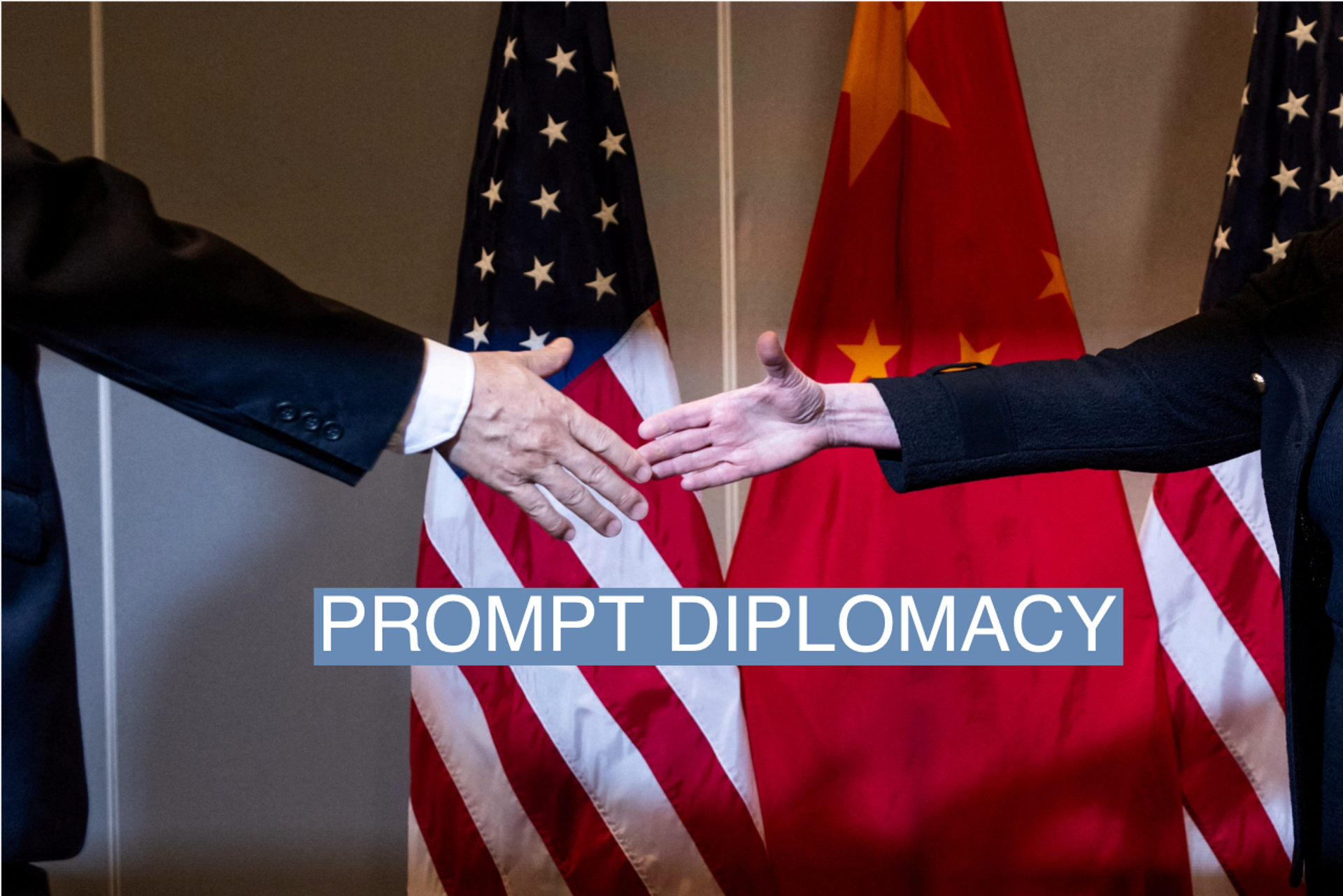The Scoop
The United States and China will likely agree this week to set up a formalized channel for talks on artificial intelligence when President Joe Biden and Xi Jinping meet in San Francisco during the Asia-Pacific Economic Cooperation summit, according to people familiar with the matter.
The talks are expected to take the form of “track 1” or “track 1.5″ diplomatic discussions, meaning they would involve some level of official government participation. One person posited that the discussions could amount to a new “working group” on AI guardrails.
The White House did not respond to a request for comment and a Chinese embassy spokesperson declined to offer specifics. Biden administration officials previously signaled that AI will likely be a topic of conversation at APEC.
When asked by Semafor about potential AI announcements out of the Biden-Xi meeting, Matt Murray, the State Department’s senior official for Asia-Pacific Economic Cooperation, told reporters Monday that the U.S. wants to continue to “advance discussions” related to AI with APEC nations and in bilateral talks.
Journalist Bill Bishop wrote in his Monday newsletter that there could be an announcement on an AI working group and that Beijing wants to use it “to complain about tech controls.”
Setting up a new channel would follow a pattern in the Biden administration’s recent engagements with China, which have also included new working groups to tackle economic and financial issues.
In this article:
Know More
The South China Morning Post reported earlier this week that Biden and Xi would pledge to ban using AI to command and control nuclear weapons, in autonomous drones, and other weaponry.
Matt Sheehan, a fellow at the Carnegie Endowment for International Peace who focuses on global technology, told Semafor that such an agreement would be significant, particularly on the nuclear side. For years, U.S. policy experts have pushed for a pledge on only allowing humans to direct nuclear weapons.
“In the past, what I had heard is that the U.S. had reached out to China at different points about having military AI talks and the U.S. had gotten burned. At least the perception of U.S. diplomats was that the Chinese side was not seriously engaging,” Sheehan said.
More recently, China has shown a desire to engage with the international community on AI, including by participating in the U.K.‘s AI Safety Summit at the start of this month. It was also among the first governments to pass laws regulating the technology domestically.
“I think they are looking for ways to work with the U.S. and the rest of the world on AI, and potentially there’s something there that the U.S. and China could do together,” Michael Froman, who heads the Council on Foreign Relations, told Semafor in an interview last week.
But some experts are skeptical that the U.S. and China will actually make this kind of pledge, particularly when it comes to AI in autonomous weapons.
“Autonomous drones have been a feature of both countries’ weapon systems for some time and it is doubtful to me, at least, that they would back off … just in the cases where the drones are powered by AI systems,” Mark MacCarthy, a senior fellow at the Brookings Institution, told Semafor. He said an agreement on nuclear systems seemed more likely.
The View From China
Chinese Embassy spokesperson Liu Pengyu said in a statement to Semafor that “think tanks and experts from China and the United States have been conducting discussions on the topic of artificial intelligence.” He said that China wants to cooperate with all parties to “properly cope with the risks and challenges brought by the military application of AI,” among other goals.
